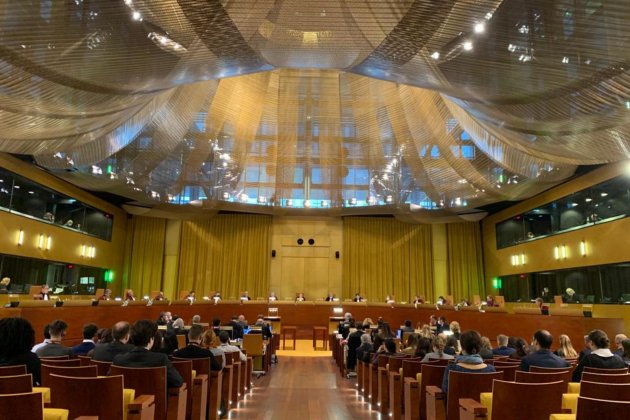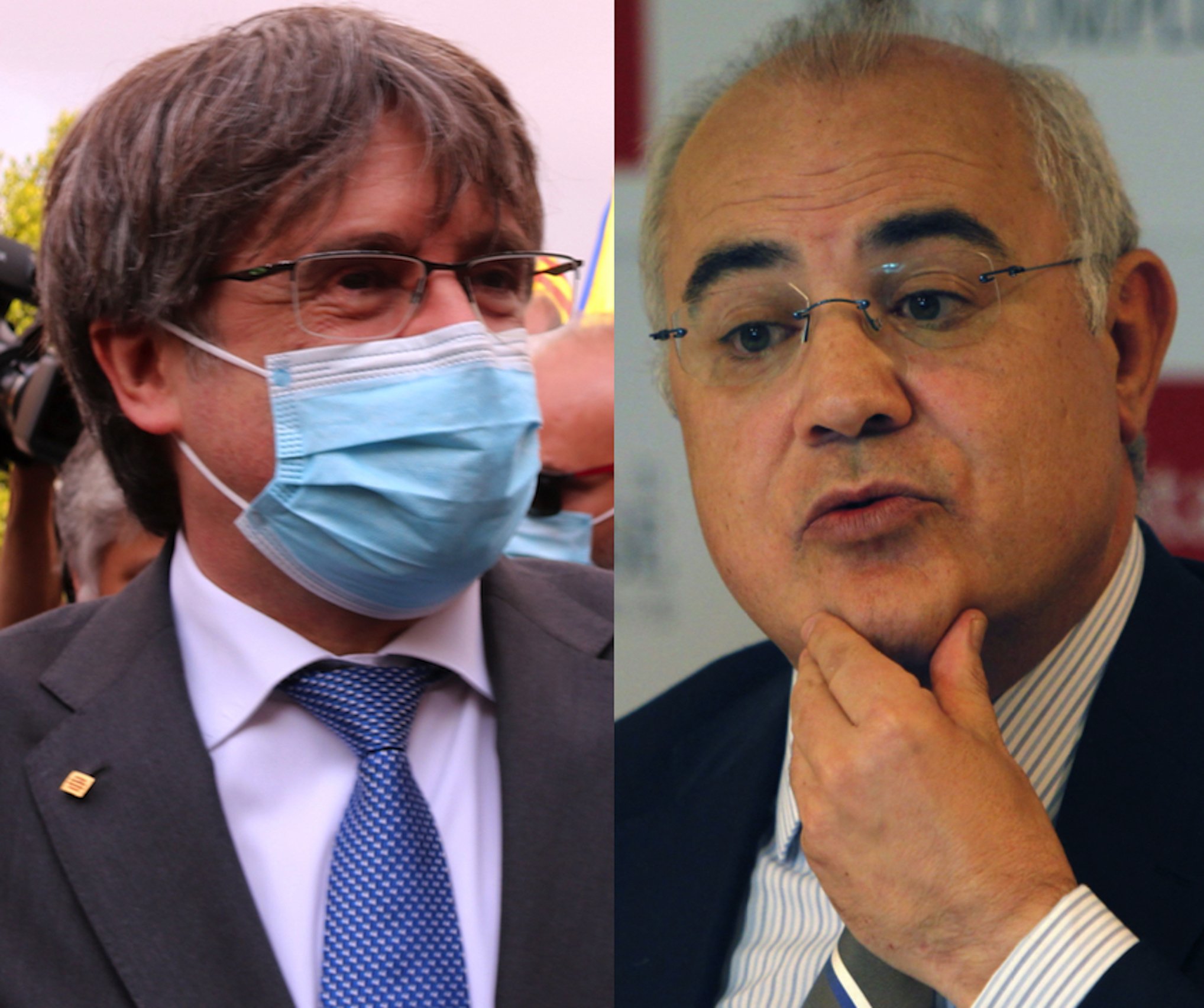Belgium justice's refusal to extradite the Catalan government minister Lluís Puig to Spain was one of the key episodes in the on-going confrontation that the pro-independence political exiles from Catalonia have maintained with the Spanish Supreme Court judge Pablo Llarena. Faced with the door slam from Belgium's judges, Llarena submitted a series of preliminary questions to the European Court of Justice (ECJ) to find out, among other things, whether he could issue a new European Arrest Warrant (EAW) to try and bring the exiles back to Spanish territory. This Tuesday at 9:30am, the Luxembourg-based court will make public its decision on this matter. This judgment of the ECJ will also point the way towards the also-awaited resolution on the immunity of MEPs Carles Puigdemont, Toni Comín and Clara Ponsatí, on which the court's judgment is expected to arrive in March.
In January 2021, the Brussels Court of Appeal definitively rejected the extradition of Puig with the argument that Spain's Supreme Court is not competent to try the minister. It was the response to the third EAW issued by the investigating judge, and Llarena responded by presenting a series of preliminary questions in which he asked the Court of Justice if a member state can deny a European warrant with an argument of violation of fundamental rights or a lack of jurisdiction of the court, and if a new warrant against the same person and in the same member state can then be issued.
The presentation of these preliminary questions paralyzed the European warrants while a response was awaited. It was the reason, together with the ruling also pending on the parliamentary immunity of the MEPs, on which the court in Sàsser (Sardinia) based its decision in October 2021 to release Carles Puigdemont after he was arrested on a visit to the town of L'Alguer. This Tuesday's decision will reactivate the legal machinery.
The court's Advocate General says no
Last July, the ECJ's Advocate General, Jean Richard de la Tour, sided with the investigating judge in his own conclusions on the preliminary questions, which, despite not being decisive, have a very significant weight on the final decision of the court. De la Tour argued that Belgium cannot assess whether the Spanish Supreme Court is the competent authority to judge Puig and that in order to establish a risk of violation of a fundamental right it is necessary to demonstrate the existence of systemic and generalized deficiencies in the operation of the Spanish judicial system.

In fact, the debate on the need to demonstrate systemic deficiencies was the focus for a significant part of the hearing on the preliminary questions that was held last April. The defence team of the exiled Catalan politicians, led by Gonzalo Boye and Isabel Elbal, play down this aspect, also noting that the recent reform of the Spanish Penal Code as well as the profound difficulties in renewing the country's judicial bodies can be used as arguments to demonstrate these deficiencies.
New request to lift immunity
Sources from the defence of the exiled Catalan politicians predict that the court's decision on the preliminary questions "will not be black or white", that whether it favours them or rejects their claim, it will be necessary to read the ruling thoroughly. They predict that it will be a long and significant judgment given that will not only respond to Llarena but will also set the jurisprudence for all the states of the Union, including particularly sensitive cases such as Poland and Hungary.
If the Court of Justice were to admit that the Spanish judge can issue a new European Arrest Warrant, the Spanish judiciary could activate it immediately in the case of Puig, on Tuesday itself. This would not be the case for Puigdemont, Comín and Ponsatí. According to the defence, in order to reactivate the EAWs against them, the judge will have to petition the European Parliament to lift their immunity again, given that the accusations against them have changed. With the entry into force of Spain's reformed Penal Code, Llarena issued a new decree in which he attributes to Puigdemont and Comín misuse of public funds in its high-penalty 'aggravated' form, as well as disobedience, eliminating the accusation of sedition as this crime has been repealed. In the case of Ponsatí, she is now accused only of a crime of disobedience.
In any case, the defence lawyers of the Catalan exiles point out that the ECJ jurisprudence so far has come out against the issue of a new EAW against the same people and for the same actions as an earlier warrant. Additionally, with regard to the application of the reform of the Penal Code, it should be recalled that in the case of the exiled Mallorcan rapper Valtònyc, the Court of Justice determined in March 2020 that the law cannot be applied retroactively and that the Penal Code in force at the time of the events occurred was the law that had to be applied.

